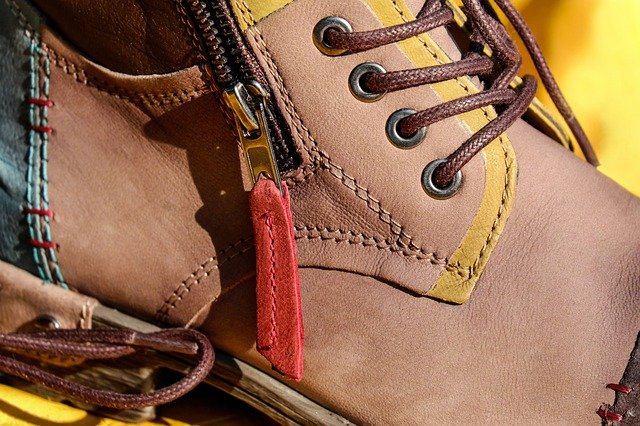Small Dogs Needing Homes: Practical Steps for Adoption, Care, and Placement
Small dog breeds often face unique challenges in shelters and rescue organizations, yet they make wonderful companions for the right families. These petite canines require specialized care considerations, from their housing needs to their social requirements. Whether you're considering adopting a small dog or helping to place one in need, understanding the complete process from initial search through long-term care ensures successful matches between dogs and their forever families.

Small dogs represent a significant portion of animals in shelters and rescue organizations worldwide. These compact companions, typically weighing under 25 pounds, often spend longer periods waiting for adoption compared to their larger counterparts. Despite their size, small dogs possess distinct personalities and needs that require careful consideration from potential adopters.
The adoption process for small dogs involves understanding their specific requirements and ensuring proper matches between pets and families. Many small breeds have been bred for companionship, making them excellent indoor pets, but they also come with unique behavioral and health considerations that differ significantly from larger dogs.
Understanding the Unique Needs of Small Dogs
Small dogs have metabolic rates that differ from larger breeds, requiring more frequent meals throughout the day. Their smaller stomachs cannot accommodate large portions, making multiple small meals essential for maintaining stable blood sugar levels. Temperature regulation also poses challenges, as small dogs lose body heat more quickly and may require additional warmth during colder months.
These breeds often develop strong bonds with their owners and can experience separation anxiety more intensely. Their size makes them vulnerable to injuries from falls or rough handling, particularly important when households include young children. Small dogs also tend to have longer lifespans than larger breeds, often living 12-16 years, representing a significant long-term commitment.
Where to Find Reputable Small-Dog Adoptions and Rescues
Reputable rescue organizations and shelters maintain thorough screening processes and provide comprehensive information about each dog’s history, temperament, and health status. National organizations like the American Society for the Prevention of Cruelty to Animals and local humane societies often have dedicated small-breed programs.
Breed-specific rescue groups focus exclusively on particular small dog breeds, offering specialized knowledge about breed characteristics and requirements. These organizations typically maintain foster networks where dogs receive individualized care while awaiting adoption. Online platforms like Petfinder and Adopt-a-Pet aggregate listings from multiple rescue organizations, allowing potential adopters to search specifically for small dogs in their area.
Veterinary clinics and pet supply stores often maintain bulletin boards with local rescue information. Word-of-mouth referrals from current pet owners and veterinarians can also lead to reputable rescue organizations with strong community reputations.
Preparing Your Home and Family for a Small Dog
Home preparation involves addressing safety concerns specific to small dogs. Securing gaps under furniture, blocking access to areas where dogs might become trapped, and removing small objects that pose choking hazards are essential steps. Small dogs can easily slip through standard fence gaps, requiring additional barriers or specialized fencing.
Family preparation includes educating all household members about gentle handling techniques and establishing consistent rules for interaction. Children need specific instruction on appropriate ways to pick up, carry, and play with small dogs to prevent accidental injuries.
Supply preparation differs from larger dogs, requiring smaller food bowls, appropriately sized collars and harnesses, and beds proportioned for comfort. Many small dogs benefit from steps or ramps to access furniture safely, reducing stress on their joints from jumping.
Basic Training, Socialization, and Behavior Management
Small dogs often develop behavioral issues when treated differently due to their size. Consistent training using positive reinforcement methods works effectively regardless of dog size. House training may take longer with small dogs due to smaller bladders requiring more frequent outdoor access.
Socialization remains crucial for small dogs, who may develop fear-based aggression if not properly exposed to various people, animals, and situations. Controlled socialization experiences help prevent the development of “small dog syndrome,” where dogs become overly protective or aggressive due to inadequate boundaries.
Barking management requires particular attention, as many small breeds were developed as alert dogs. Training should focus on teaching appropriate times for barking while providing mental stimulation to prevent boredom-related vocalizations.
Health, Grooming, and Long-Term Care Considerations
Small dogs face specific health challenges including luxating patella, tracheal collapse, and dental issues due to crowded teeth in smaller mouths. Regular veterinary care becomes particularly important for early detection and management of breed-specific conditions.
Grooming requirements vary significantly among small breeds, from minimal care for smooth-coated varieties to daily brushing for long-haired breeds. Professional grooming may be necessary every 6-8 weeks for breeds with continuously growing coats.
Dental care requires special attention, as small dogs develop tartar buildup more quickly than larger breeds. Daily teeth brushing and regular professional cleanings help prevent periodontal disease, which can lead to more serious health complications if left untreated.
| Service Type | Provider Examples | Key Features | Cost Estimation |
|---|---|---|---|
| Adoption Fees | Local Humane Societies | Spay/neuter, vaccinations included | $50-$300 |
| Breed-Specific Rescues | Chihuahua Rescue, Pug Rescue | Specialized breed knowledge | $200-$500 |
| Professional Training | PetSmart, Petco | Group classes, basic obedience | $100-$200 per course |
| Veterinary Care | Local veterinary clinics | Routine checkups, vaccinations | $200-$500 annually |
| Professional Grooming | Independent groomers, pet salons | Full service grooming | $30-$80 per session |
Prices, rates, or cost estimates mentioned in this article are based on the latest available information but may change over time. Independent research is advised before making financial decisions.
Adopting a small dog requires careful consideration of their unique needs and long-term commitment to their care. Success depends on matching the right dog with the appropriate family situation, ensuring both the pet and adopters are prepared for a lasting relationship. Through proper preparation, training, and ongoing care, small dogs can provide years of companionship and joy to their adoptive families.




